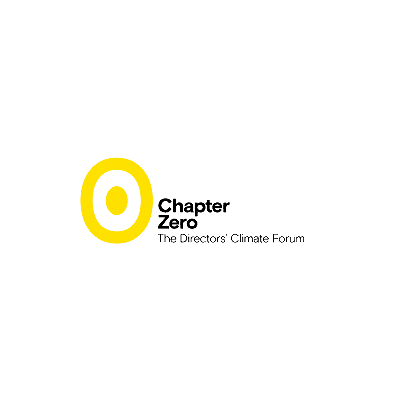Description
Chapter Zero enabling non-executive directors in UK boardrooms to engage effectively in a strategic debate about the climate challenge for their businesses, and how they will contribute to achieving the Government’s target of net-zero emissions by 2050.
History
In 2019 Chapter Zero was set up by a group of non-executive directors (NEDs) who recognised that they have a role in making sure their businesses respond to the risks and opportunities created by climate change. They could see that NEDs hold a unique position with the potential to make this happen, but to do so need relevant information tailored to their role in business. They decided to found Chapter Zero and build a community of NEDs who were equipped, ready and prepared to act.
As they were coming together in the UK, the World Economic Forum (WEF) was publishing its report on ‘How to set up effective climate governance on corporate boards’. The report contains eight principles and guiding questions for boards to address to embed climate governance in their business. With an aligned view on the importance of the board’s role when it comes to addressing climate change, a fruitful partnership has followed. As part of this, Chapter Zero is the UK Chapter of the WEF’s Climate Governance Initiative and has shared its experience with new and emerging directors’ climate forums around the world.
Chapter Zero was developed with the support of the Hughes Hall Centre for Climate Change Engagement, University of Cambridge, and Deloitte. In 2020 Chapter Zero received philanthropic funding and employed a permanent team of staff. Chapter Zero is a not-for-profit business wholly owned by Hughes Hall, a college at the University of Cambridge.
Chapter Zero Functions
The company helps non-executive directors address potential business risks and opportunities and conduct this discussion in their boardrooms, and provides a space in which the non-profit community can expand their knowledge, understanding, and experience of this complex and critical business challenge by:
- Running climate change briefings, round tables, workshops and conferences with our Partners.
- Creating awareness of other relevant events members would find useful to attend.
- Making available practical toolkits which enable members to take climate change discussions into their boardrooms.
- Providing access to briefing materials, films, and online courses.
- Signposting where to go for help on climate change as an engaged board member.
- Bringing together investors, regulators, company directors, plus key experts, to learn from and influence each others’ perspectives.
- Providing a forum where directors can share experiences and debate issues.
- Giving access to the World Economic Forum online materials.





















